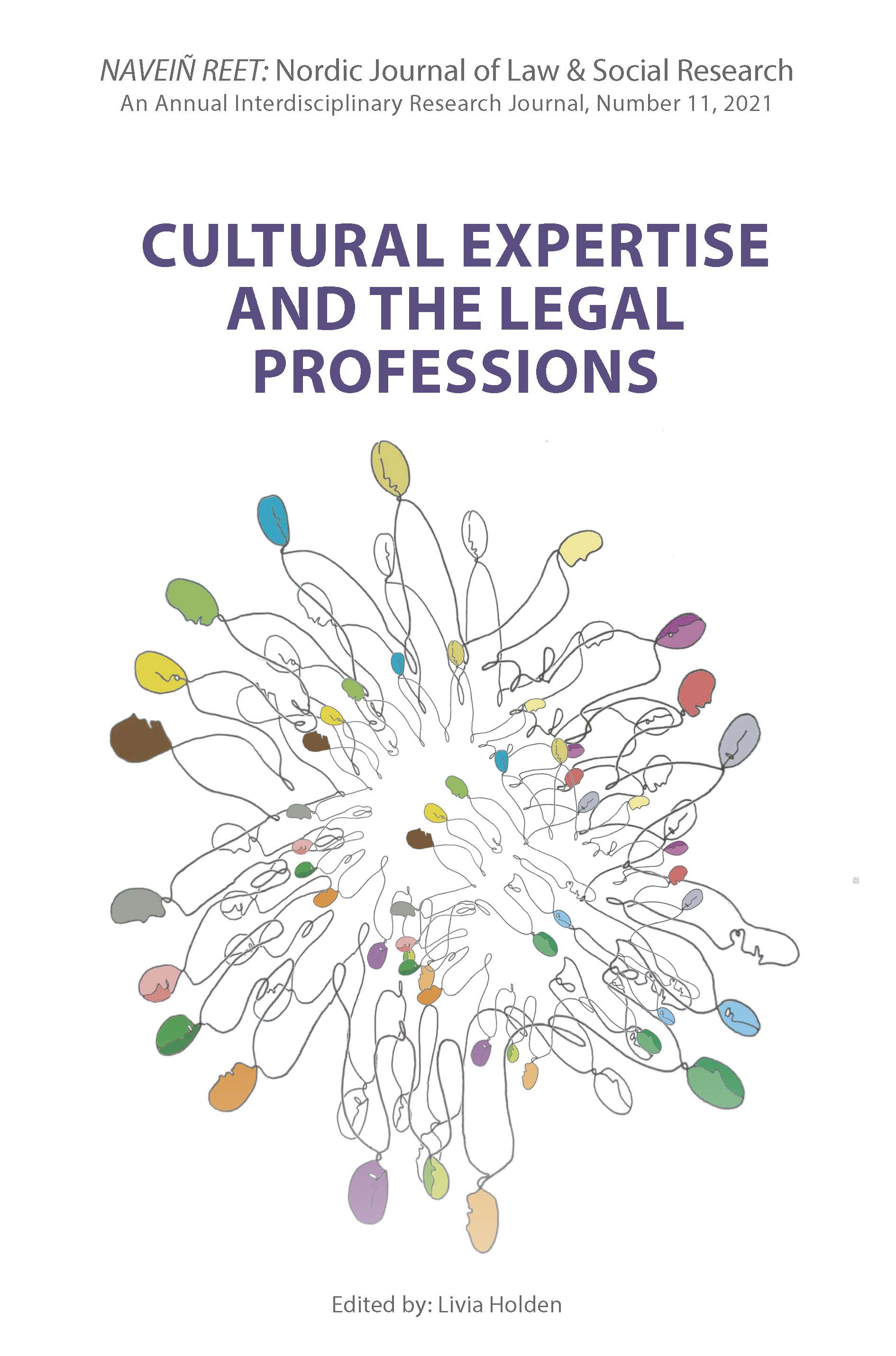Experts and the Judiciary
Reflections of an Anthropological Expert in The Field of Asylum and Migration Law
DOI:
https://doi.org/10.7146/nnjlsr.vi11.132001Abstract
In this paper I draw on my experience as an anthropologist, twenty-six years work as a country expert and extensive research on asylum and immigration law and practice to assess how litigation has shaped the role of country experts and the way their evidence is evaluated by Judges who sit in United Kingdom’s Immigration and Asylum Tribunal (IAT) and in the English Court of Appeal. I begin by looking at the history of applied work in Anthropology and my growing involvement as an Anthropological ‘expert’ involved in asylum and immigration law. I then examine litigation in the British courts which has attempted to define and regulate the role of experts and their evidence. Finally, I discuss my work as a country expert and how the courts have assessed the ‘validity’ of my evidence by drawing on a diverse range of asylum claims. The paper concludes that while experts confront a range of constraints imposed by the law, they can successfully challenge judges to rethink their assumptions and ensure that vulnerable refugees are granted protection.
In the mid-1990s I received an unsolicited email from a barrister asking me to write an ‘expert’ report for a child who was claiming asylum in the UK. I had never heard of ‘country experts’ nor was I aware of the form which the report should take or what issues it should address. It took me an entire week to draft a short report at the expense of my obligations as an academic in a British university. I never heard the outcome of that appeal. Since that inauspicious beginning I have written over six hundred reports and I have conducted extensive fieldwork and research on the British asylum system. This paper examines the provision of ‘cultural expertise’, a term which Holden (2019) and Henderson et al (2020) have used to describe a specific role take up by academics who provide expert evidence to the courts which enables judges/mediators to better understand key socio-cultural and other issues which are relevant to the case. Holden is particularly interested in the engagement of anthropologists as experts in the legal process. In this sense, cultural expertise should not be confused with the ability attributed to anthropologists of understanding a society’s ‘culture’ based on ethnographic research.
Section (i) examines how my career as an academic anthropologist became intertwined with work as a ‘country expert’, and how expert witnessing expanded from a part-time preoccupation to become the focus of my professional work and research. Section (ii) provides an overview of litigation which has sought to regulate the work of country experts. In section (iii) I draw on my experience as an anthropological expert to show the tensions between experts and the judiciary and how my work has sought to challenge judicial interpretations in an attempt to secure protection for refugees.
Downloads
Published
How to Cite
Issue
Section
License
Counting from number 12 (2022), articles published in NNJLSR are licensed under Attribution 4.0 International (CC BY 4.0). Readers are allowed to copy and redistribute the articles in any medium or format, to adapt and revise the articles, and use the articles for commercial purposes, provided that the readers give appropriate credits.
No Creative Commons licenses are applied on articles in number 1 (2009)-11 (2021). All rights reserved by the authors. Readers are allowed to download, read, and link to the articles published in volume 1 (2009)-11 (2021), but they may not republish or redistribute these articles without permission of the authors.

